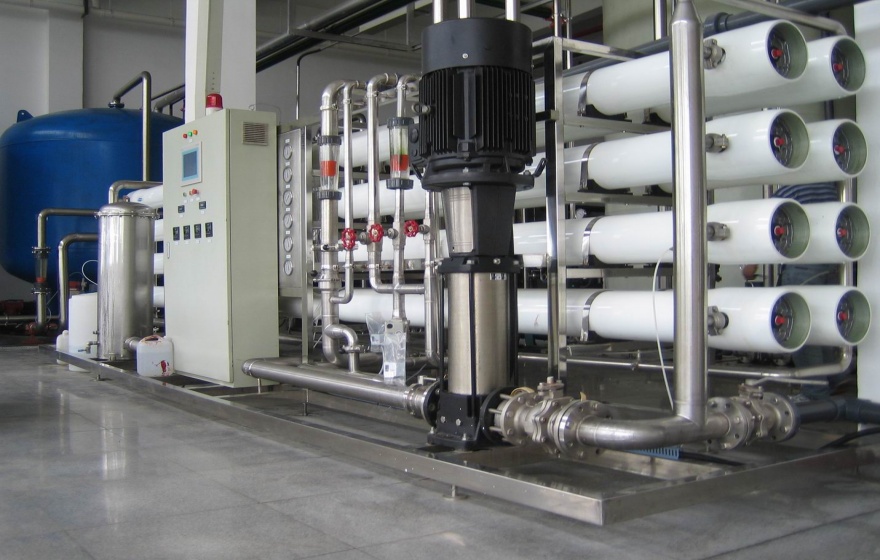Nanofiltration (NF)
Nanofiltration can concentrate constituents with a molecular weight greater than 1,000 daltons.
Removes sugars, salts, bacteria and proteins.
Nanofiltration (NF) is a form of filtration that uses membranes to preferentially separate different fluids or ions. Nanofiltration is not as fine a filtration process as reverse osmosis. Nanofiltration also uses a membrane that is partially permeable to perform the separation, but the membrane's pores are typically much larger than the membrane pores that are used in reverse osmosis.
Nanofiltration is most commonly used to separate a solution that has a mixture of some desirable components and some that are not desirable. An example of this is the removal of dye from brine streams. The nanofiltration membrane will allow the water and salt to pass through the membrane while retaining the dye. As the concentration of the fluid being rejected increases, the driving force required to continue concentrating the fluid increases.
Nanofiltration can also be used to purify fluids such as glycols, where the glycol will pass through the membrane.

FLAG ETS, LLC



